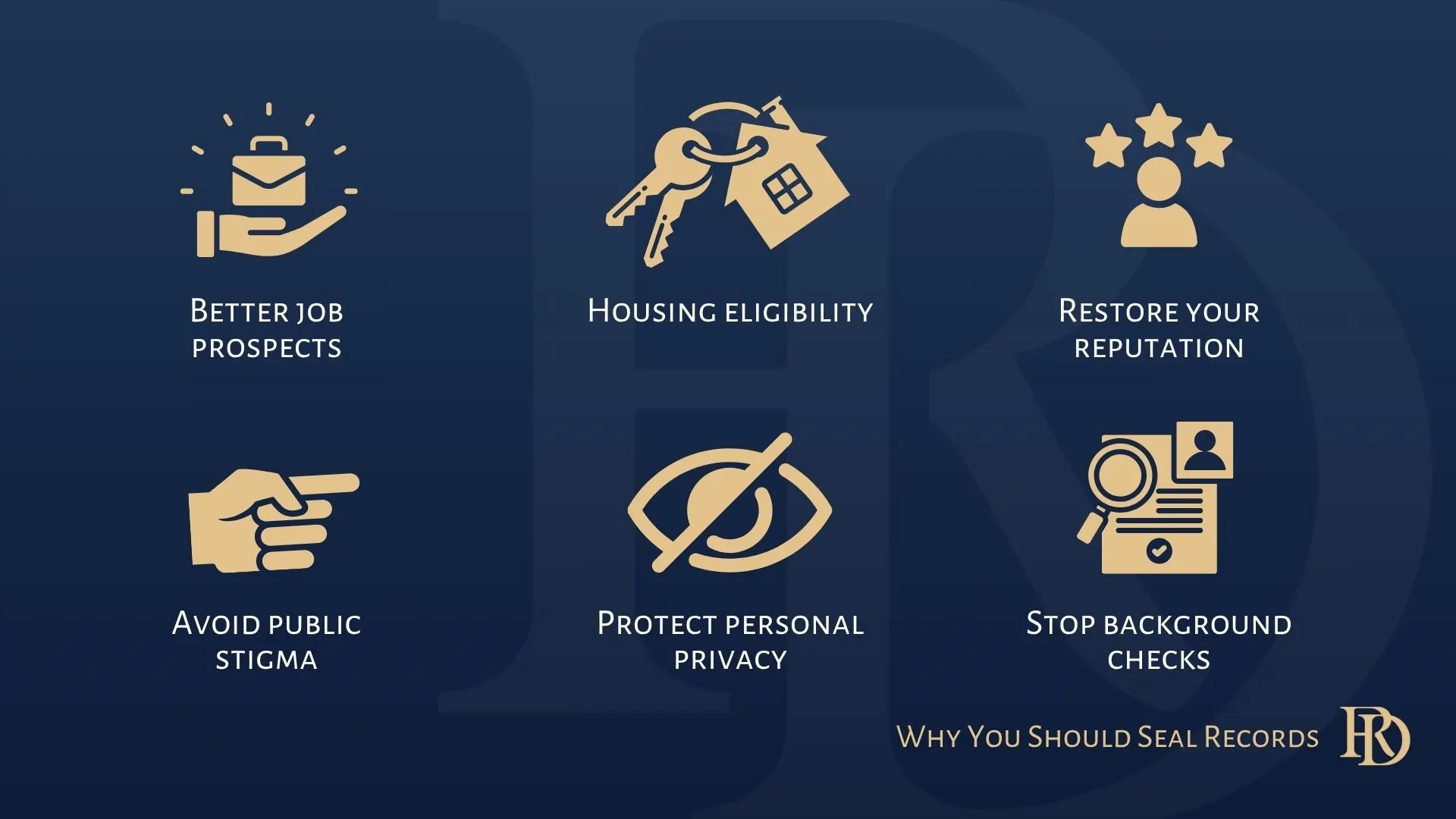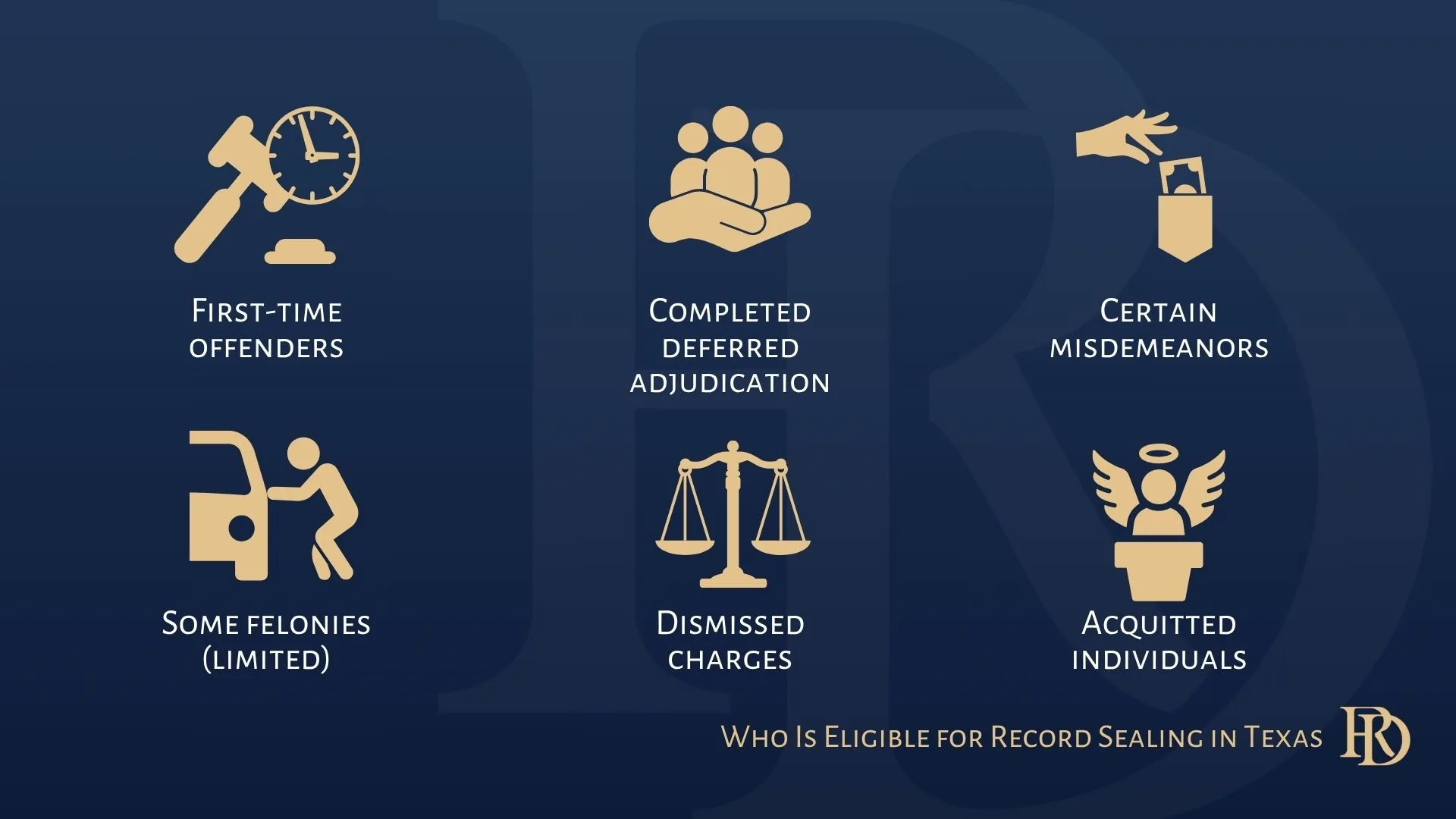
Why You Should Seal Records

Sealing a criminal record — also known as an order of non-disclosure — means that most employers, landlords, and the general public cannot access your past charges or arrests. Although the records still exist, they’re hidden from public view, offering you a second chance at employment, housing, and other future opportunities.
As an experienced criminal record sealing lawyer in Williamson County, Ryan H. Deck will evaluate your case and determine the best legal strategy to get you started on a clear path and to protect your future.
Who Is Eligible for Record Sealing in Texas

Texas law allows for record sealing (non-disclosure) in certain situations, including:
- You successfully completed deferred adjudication for eligible offenses.
- You completed a pre-trial diversion program.
- Your offense qualifies under the Texas Government Code for nondisclosure.
- You were convicted of a low-level offense and met the waiting period requirements.
Some offenses, such as murder, family violence, and certain sex crimes, are never eligible for criminal record sealing. Eligibility depends on multiple factors, including the type of offense, case outcome, and waiting period.
Expunction vs. Record Sealing
Expunction erases your criminal record entirely. This is available in very limited situations, such as cases that were dismissed, resulted in not guilty verdicts, or involved certain Class C misdemeanors with deferred adjudication.
Record Sealing hides your record from public access but keeps it visible to some government entities. This is more widely available than expunction and is often used after completing deferred adjudication.
The Process of Sealing Criminal Records
Here’s how the process typically works:
- Determine eligibility: Your attorney will assess your record to confirm whether you qualify under Texas law.
- File a petition: The attorney files a formal petition for non-disclosure in the proper district court.
- Court review: In some cases, a hearing is required. Your lawyer will argue on your behalf.
- Final order issued: If granted, your record will be sealed from public view.
The process can take several weeks to several months, depending on the case's complexity and the court's schedule.
How We Can Help You
We work closely with you to make the process as smooth and efficient as possible. Here’s what we do:
- Evaluate your eligibility for non-disclosure or expunction
- Prepare and file all required legal documents
- Represent you in court if a hearing is needed
- Follow up to ensure agencies comply with the sealing order
Attorney Ryan H. Deck brings nearly two decades of criminal defense experience to each case and is committed to helping clients throughout Williamson County regain control of their lives.

Target

Protect Your Reputation and Future. Call Today.
Don’t let a past mistake limit your opportunities. We help people across Round Rock seal their records and take control of their future.

Take the First Step Toward a Clean Record
Fill out the form below to see if you're eligible for record sealing. Consultations are confidential and free of charge.


FAQs
This is some text inside of a div block.
What’s the difference between sealing a record and expunging it?
Sealing (non-disclosure) hides your record from public view, while expunction deletes it entirely. Expunction is more limited.
Can I seal a record if I was convicted?
It depends. Certain low-level convictions may be eligible after a specified waiting period. Most convictions, however, do not qualify for this program.
Does sealing my record affect background checks?
Yes. Most employers, landlords, and private background checks won’t be able to see a sealed record.
How long does it take to seal a criminal record in Texas?
The process typically takes between a few weeks and a few months, depending on court availability and the complexity of the case.
Can government agencies still see my sealed record?
Yes. Law enforcement and certain licensing agencies may still access sealed records in limited circumstances.
What if I were arrested but not charged?
If charges were never filed or were dismissed, you may be eligible for expunction instead of sealing.


